Most penguins live in and around Antarctica in the southern hemisphere. This means they have to be able to survive in extreme cold conditions. Penguins have several adaptations that allow them to stay warm when temperatures plummet.
This simple science investigation uses a wax crayon to show how a waxy coating acts as a water-repellent.
Penguin adaptations
- Penguins produce oil from a gland near their tail which they spread over their feathers. This gives the feathers a waxy coating, allowing them to repel water.
- Densely packed feathers trap air, which acts as an insulator.
- A thick layer of blubber.
- This very simple science activity demonstrates how the waxy coating protects penguins from the extreme cold of their environment.
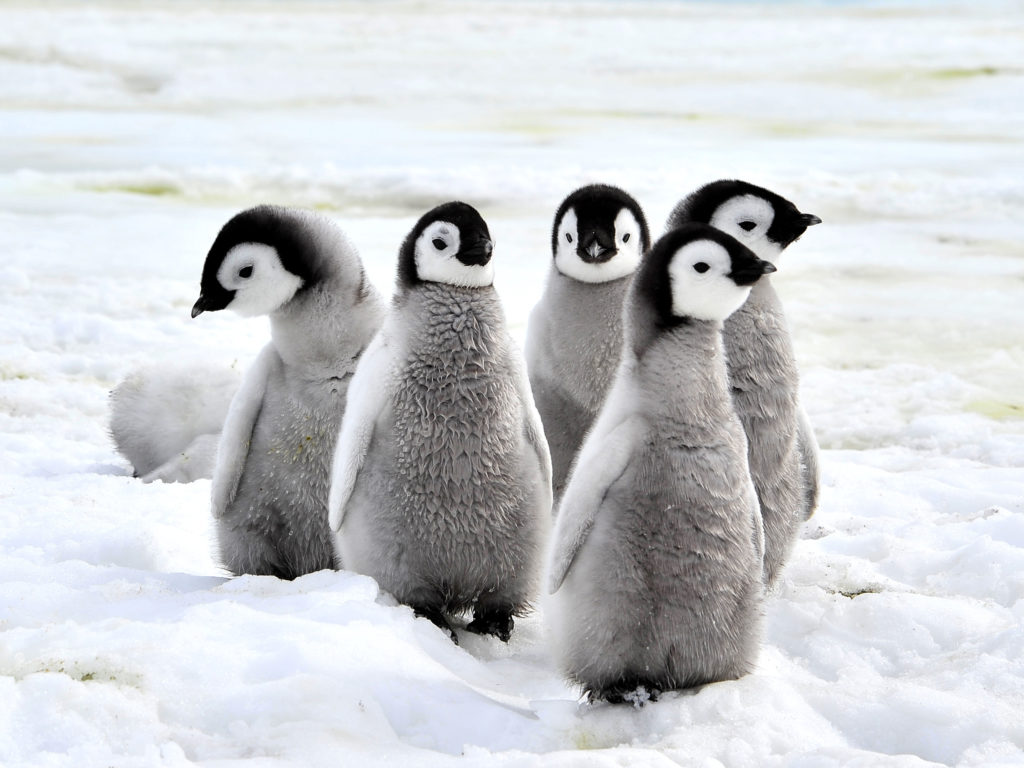
Why don't penguins freeze?
You'll need
Penguin printable experiment sheet ( or draw your own )
Wax Crayons
Marker pens / felt tip pens
Colouring pencils
Water
Instructions
Colour one penguin from the printable sheet with wax crayon. This needs to be a thick coating, so go over each area a few times with the crayon.
Leave the second penguin blank. This is the control.
Colour the last two penguins with two other types of pen. Marker pens ( felt tips ) or colouring pencils work well.
Carefully drop five drops of water onto each penguin.
Watch what happens to the water.
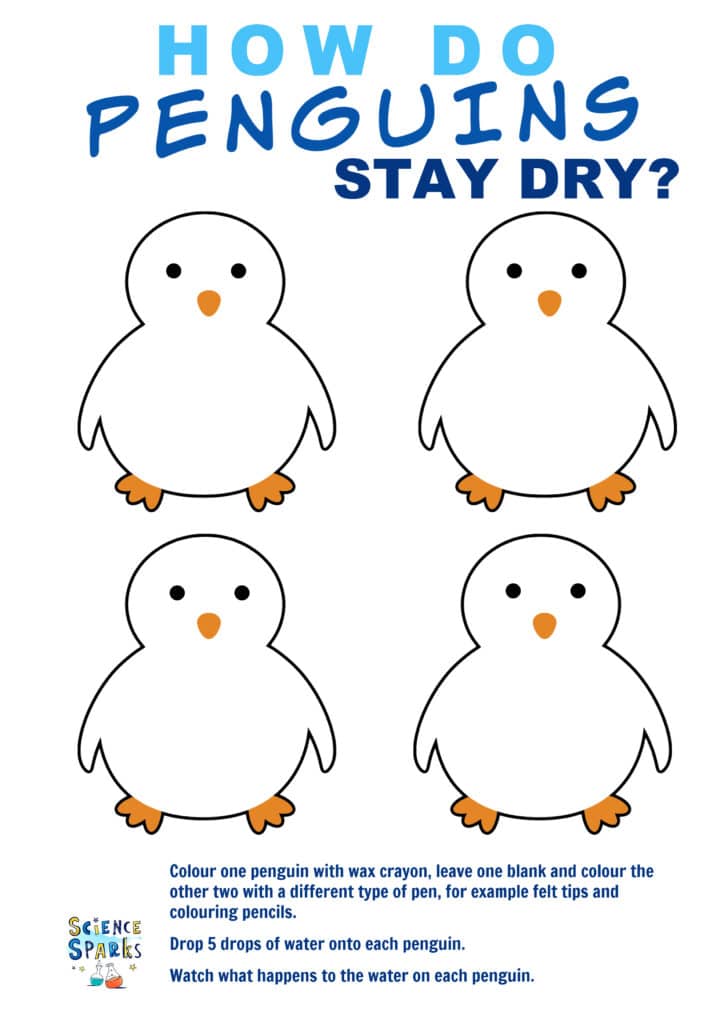

The wax crayon will repel the water. You should see beads of water form on the penguin coloured with crayons. The paper should absorb the water for the other three penguins as they don't have a waterproof coating.
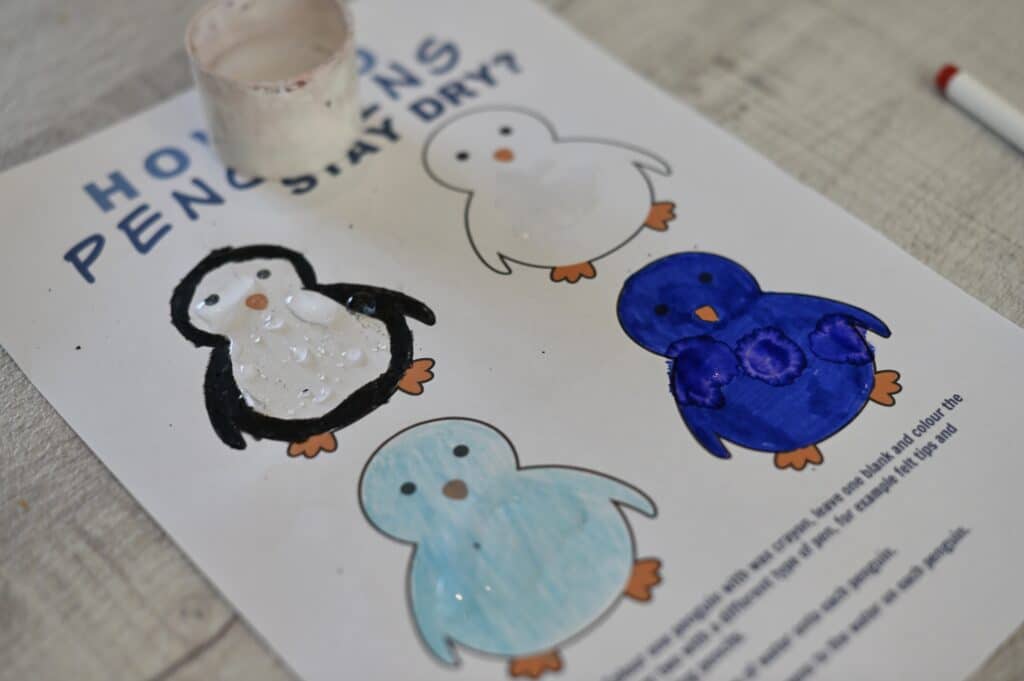
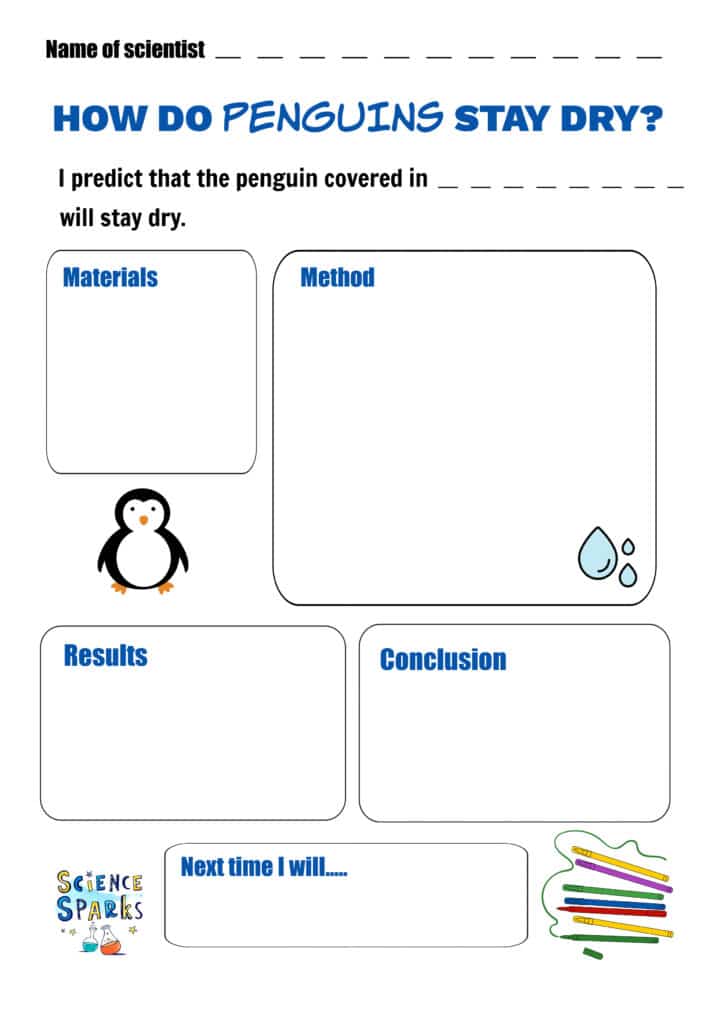
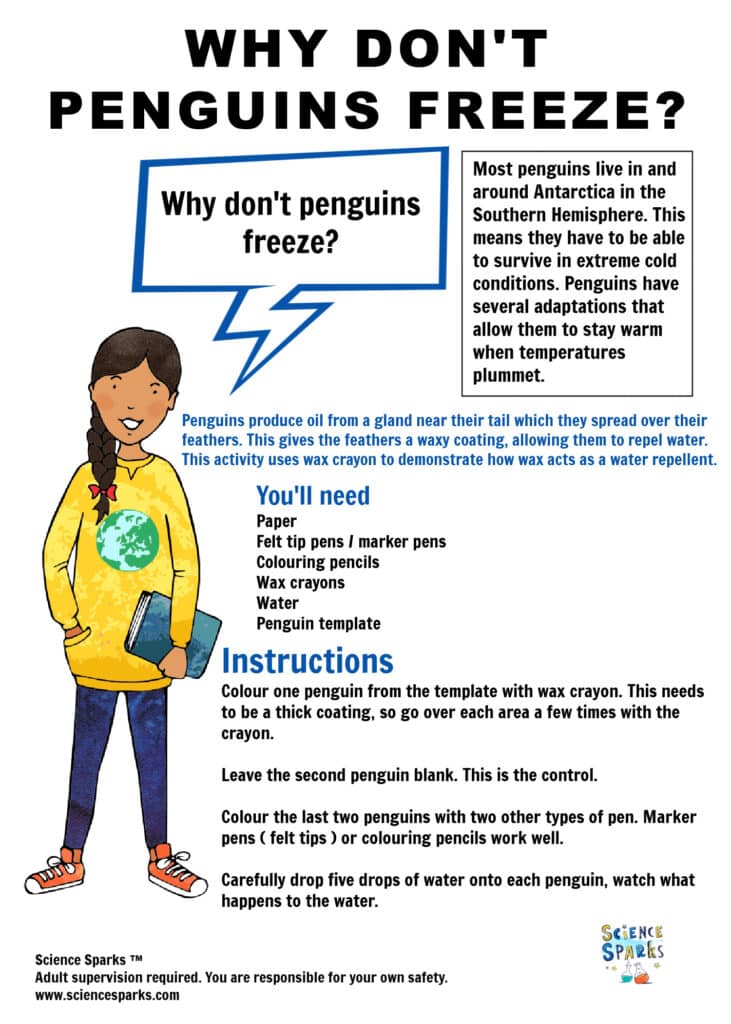
Threats to penguins
Climate change and the warming of the Earth's polar regions are a huge threat to penguin populations. The melting of sea ice means penguins are losing their natural habitat.
Fishing - overfishing in Antarctic regions has reduced the food supply for penguins. They are also at risk of getting caught in nets.
What is an adaptation?
Adaptations are features which make an animal or plant well-suited to life in their environment.
Penguin adaptions
- Heavy, solid bones to allow them to stay underwater.
- Two layers of feathers to trap air for insulation.
- A thick layer of blubber for insulation.
- Streamlined shape for swimming.
- Strong claws and short legs for gripping on the ice and rocks.
- Paddle-like wings for swimming in water.
More penguin science activities
Experience first-hand why and how a thick layer of blubber helps keep penguins warm.
Learn about the effects of melting polar ice caps with a hands-on demonstration.
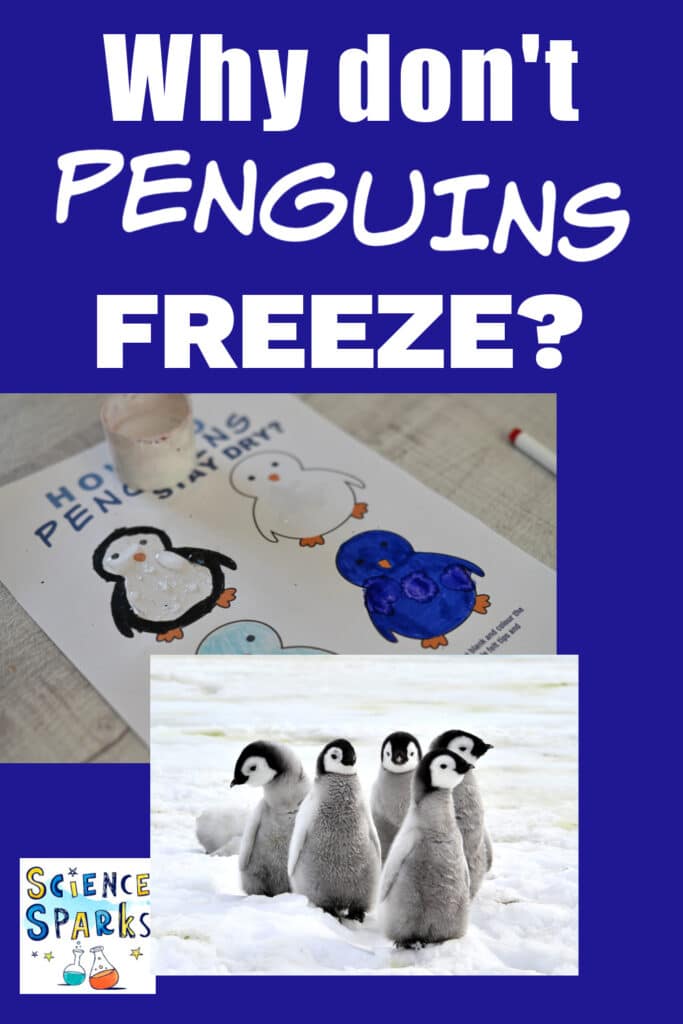
Last Updated on January 13, 2026 by Emma Vanstone
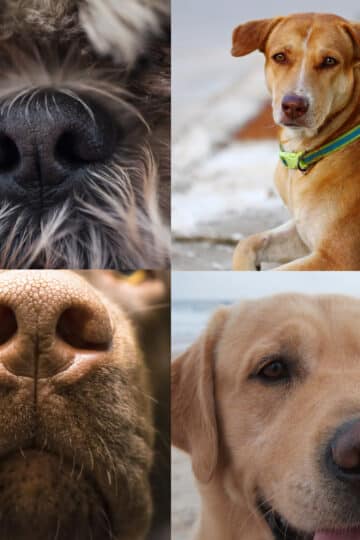
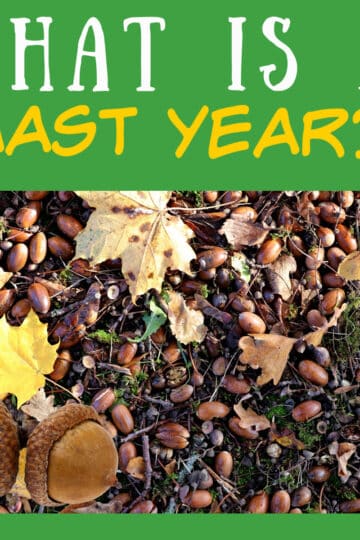
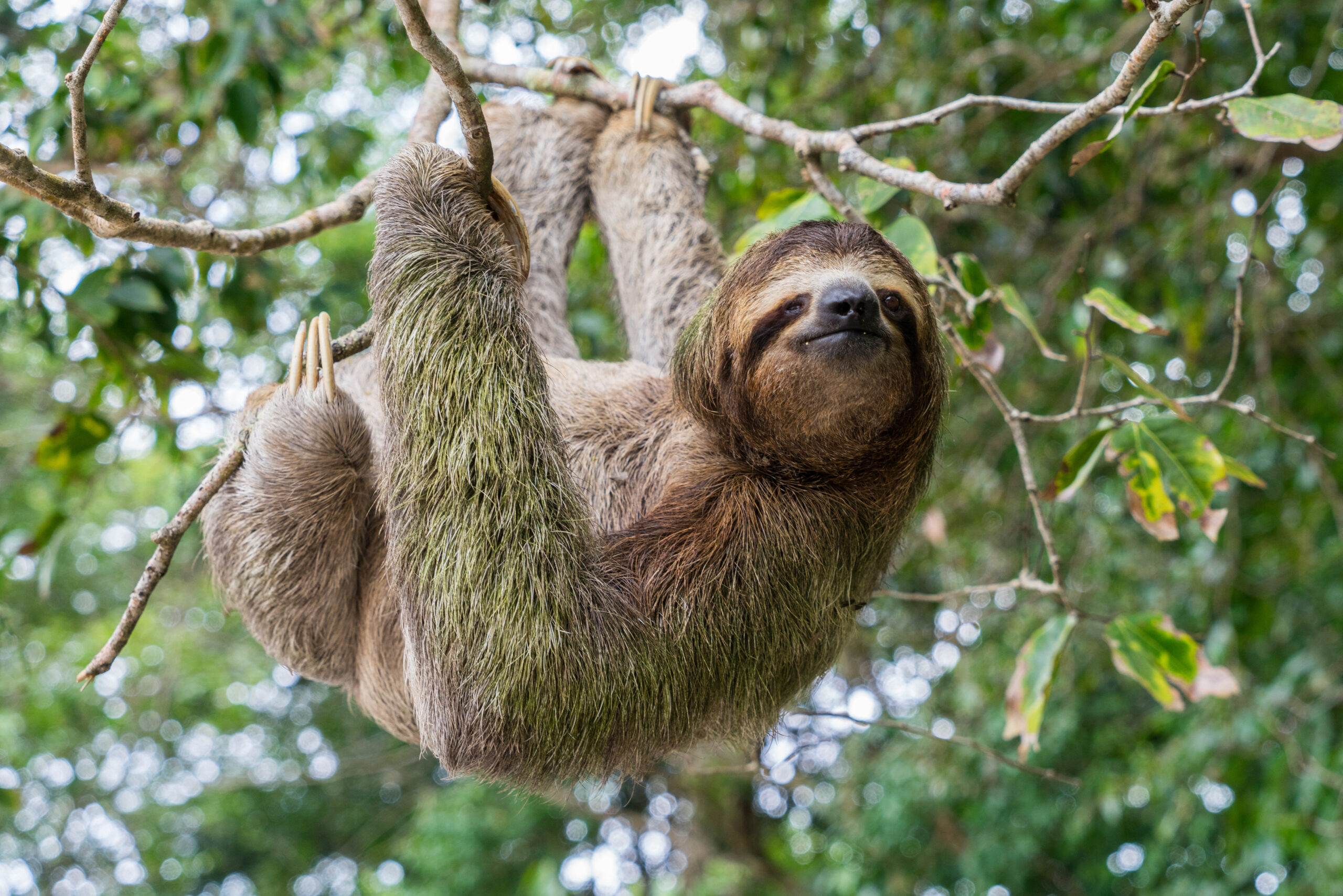

Leave a Reply